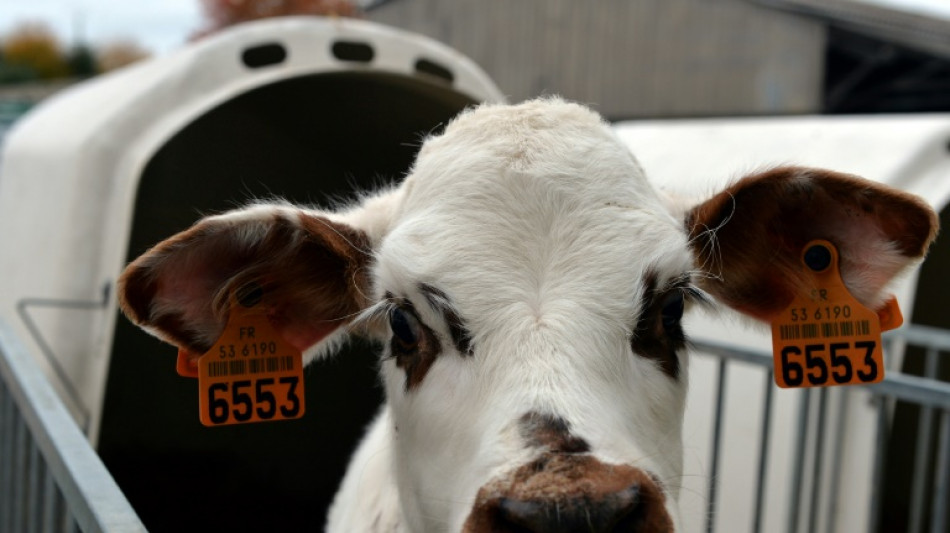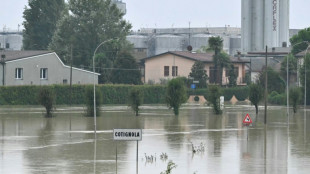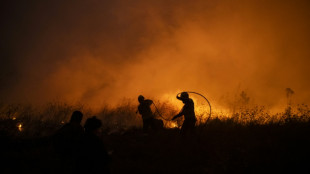

Dairy giant Danone vows to slash planet-warming methane
French food giant Danone said Tuesday it would slash planet-warming methane emissions by 30 percent by 2030, vowing to change the way the cows it uses are raised and milked.
Methane is responsible for roughly 30 percent of the global rise in temperatures to date. It is released from the oil and gas, waste and agriculture sectors as well as through natural processes.
Cattle farming is a major driver, since cows expel methane by burping. Their manure also releases the harmful gas. Agriculture and livestock generate about 40 percent of the methane linked to human activities, with the rest coming mainly from the gas sector.
Danone said Tuesday it would seek to cut its methane emissions by using cow breeds that emit less methane, improving cow diets, prolonging their milking periods and capturing emissions from manure to be used for biogas, for example.
"We will see how we can improve practices in general on farms," spokeswoman Jeanette Coombs-Lanot told AFP.
It said it would reduce emissions by 30 percent by the end of the decade compared to 2020 levels.
The target covers all fresh dairy products, such as yoghurt, made from milk that Danone purchases directly from 58,000 dairy farms in 20 countries. The company's milk production accounts for 70 percent of the firm's methane emissions.
It does not include powdered formula, which it purchases from third-party intermediaries.
Danone says it had already reduced its methane emissions by "about 14 percent" between 2018 and 2020, and that methane emissions account for about a quarter of its carbon footprint.
In Morocco, where the group collects milk from small farmers, "there is a lot of progress that can be made by optimising production", Coombs-Lanot said.
Increasing the milk yield of each cow, for example, could allow farmers to reduce their herd size while maintaining production, thus reducing methane emissions.
The company is also looking at innovative solutions to help reduce emissions, for example via a face mask that can trap burp gases, or by changing diets to include algae additives.
The United Nations Environment Programme said in a 2021 report that technological solutions had only limited potential to significantly reduce emissions from the agricultural sector.
It said behaviour changes -- namely improving livestock management and reducing meat and dairy production and consumption -- were crucial to slashing methane emissions.
More than 100 nations agreed in 2021 under the Global Methane Pledge to reduce emissions 30 percent by 2030, spearheaded by the US and European Union.
But several major methane emitters -- including China, Russia, Iran and India -- did not sign it.
C.Aguilar--ESF




